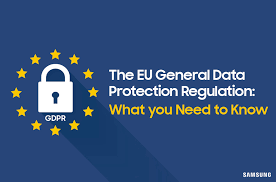
Caldicott Guardian
A Caldicott Guardian is a senior person responsible for protecting the confidentiality of patient and service-user information and enabling appropriate information-sharing. Each NHS organisation is required to have a Caldicott Guardian. Dr Adam Paynter is the Caldicott Guardian for the Lander Medical Practice.
Confused about Record Sharing?
Confused about Summary Care Records?
Confused about Data Protection?
This section of the website contains information and external links to information regarding your medical records (those we hold on paper and those stored on the computer). You will be able to link to the appropriate forms that need completion depending on your choice of how we share your records with other clinical organisations.
RECORD SHARING - SystmOne Computer System
The Lander Medical Practice uses the SystmOne medical computer system to record all medical information about you. Many other organisations also use this system. Each of these organisations have the ability to share the information they hold with anyone involved in your direct care, across different healthcare services.
You have the choice whether or not to share your information to other providers.
Patients who register at the Practice from May 2018 will receive a new patient questionnaire requesting their permission for consent or dissent.
Click here for the Patient Guide to your Electronic Health Record Patient Guide EHR.
Click HERE for the Patient Leaflet.
If you registered at the Practice before May 2018 you will not have had consent recorded for the sharing of this information between SystmOne computer users. If you wish to let us know your consent choices please complete the form that can be found HERE and return to the Lander Medical Practice.
SUMMARY CARE RECORD
The SCR is an electronic record of important patient information, created from GP medical records. It can be seen and used by authorised staff in other areas of the health and care system involved in the patient's direct care countrywide.
Access to SCR information means that care in other settings is safer, reducing the risk of prescribing errors. It also helps avoid delays to urgent care.
At a minimum, the SCR holds important information about;
- current medication
- allergies and details of any previous bad reactions to medicines
- the name, address, date of birth and NHS number of the patient
The patient can also choose to include additional information in the SCR, such as details of long-term conditions, significant medical history, or specific communications needs.
Summary Care Record for patients
If you are registered with a GP practice in England your Summary Care Record is created automatically, unless you have opted out. 98% of practices are now using the system. This will contain the minimum information mentioned above. You can talk to your practice about including additional information to do with long term conditions, care preferences or specific communications needs.
GP information on creating SCRs and including additional information
The Summary Care Record is created automatically through clinical systems in GP practices and uploaded to the National Spine. It will then be updated automatically. When new patients are registered the practice should check they are happy to have an SCR.
Security and the SCR
Data within the SCR is protected by secure technology. Users must have a smartcard with the correct codes set. Each use is recorded. A patient can ask to see the record of who has looked at their SCR, from the viewing organisation. This is called a 'Subject Access Request'.
Patient data is protected by strict information governance rules and procedures. Each organisation using the SCR has at least one privacy officer who is responsible for monitoring access and can generate audits and reports.
A patient can also opt out of having an SCR by returning a completed opt-out form to their GP practice
Click here for the form to: Opt out of Summary Care Record
Click here for the form to: Enter into the Summary Care Record (if you have previously opted out)
Additional Data - 'Enriched Summary Care Record' - Is it for me??
Health and care staff should identify patients who would particularly benefit from additional information and encourage them to add to their SCRs. Such patient groups include:
- patients planning for end of life, who can use SCRs to share information about their preferences, Lasting Power of Attorney and advance decisions
- frail patients, who can use SCR to give out of hours or emergency health care staff more complete information, making unwanted admission less likely
- patients with long term conditions
- patients eligible for flu vaccinations
- those with dementia or learning disabilities
- patients with physical, sensory or other disabilities, who can benefit from recording any specific needs, for example communication needs, so that health and care staff can make reasonable adjustments
- non-English speakers
- patients with carers whose details they want to share or who have appointed someone to have Health and Welfare Lasting Power of Attorney
- patients with specific care preferences
If you would like to have an 'enriched summary care record' please let your surgery know.
Patients who can't consent
GPs must always act in the best interest of their patients. This might mean that additional information should be added to the SCR of a patient who lacks capacity to consent. GP practices and clinicians should follow existing guidance and their usual processes for gaining consent and making best interest decisions on behalf of patients who can't consent. Every effort should be made to talk to all patients and help them understand their choices. This Easy read leaflet on SCR and additional information can help.
Carers of patients who are vulnerable or might have difficulty understanding their SCR choices can be involved in the discussion. Any patient preferences expressed in the past should be taken into account. Parents can help their children come to a decision if they think adding information to their SCR would improve their care. If someone has a Health and Welfare Lasting Power of Attorney that grants them the necessary powers and is registered with the Office of the Public Guardian, then they can legally give the consent on behalf of a person who lacks capacity, as long as they are acting in the patient's best interests.
The GP can make a decision in the best interest of the patient if they can't give informed consent. If this means that additional information is included without patient consent, they should record how the decision was made, including why they decided the patient lacks capacity, in the free text box when the SCR consent status is changed.
DATA PROTECTION
The GDPR is EU legislation from 25th May 2018. It is a regulation by which the European Parliament, the Council of the EU and the European Commission intend to strengthen and unify data protection for all individuals within the EU. Included in this legislation is Data Protection - The Data Protection Bill will become law when GDPR is enacted as the Data Protection Act 2017. The current Data Protection Act 1998 will be completely replaced by the Data Protection Act 2017. BREXIT will not affect GDPR as GDPR will have been implemented before BREXIT. General Practice is a public authority and all public authorities must appoint a DPO.
The Lander Medical Practice started preparation for the introduction of the General Data Protection Regulation (GDPR) on 25th May 2018 and how it affects the way that the surgery processes personal data, including sensitive health records.
You can find out more about the GDPR here>>>> 
One of the requirements of the GDPR is to provide detailed fair processing information – privacy notices – about all processing of personal data. We are working on these notices and they will be provided on this website by 25th May 2018.
We will ensure that patients of The Lander Medical Practice are made aware of their rights under the new legislation and that the surgery meets its responsibilities under the GDPR.
You have the right to both:
- Opt out of any of the data sharing schemes
- Opt back into any of the data sharing schemes (that you may have already opted out of)
Updated April 2018